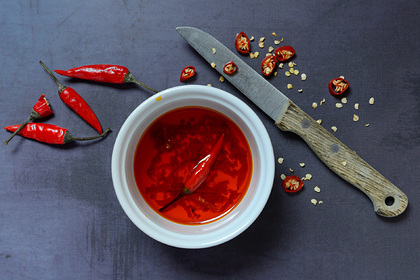
Scientists at the Australian National University have concluded that spicy food in Asian countries does not help residents to avoid infections. An article debunking the myth of the anti-microbial benefits of spices was published in the journal Nature Human Behavior.
The researchers refuted the “gastronomic Darwinism” hypothesis that spicy food helps people survive in hot climates, where the risk of contamination from food can be costly for the body in terms of health and survival. Although hot spices are really popular in hot countries, scientists have found that frequent consumption of spicy foods, on the contrary, is associated with a high risk of death, not only from poisoning, but also for other reasons that are not related to food, such as car accidents.
According to experts, this does not mean that spicy food reduces life expectancy. Instead, there are many socioeconomic indicators that can be correlated with frequent spice use. However, scientists have ruled out a number of possible explanations, including climate, population density, cultural diversity, biodiversity, and the number of crops grown.

